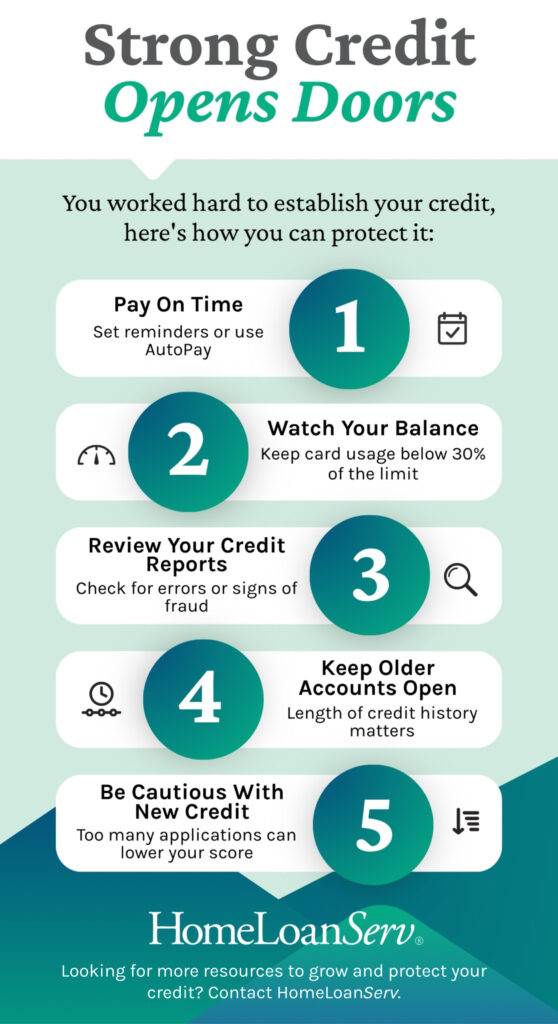Power Up Your Credit: Free Tools to Monitor and Improve Your Score

Your credit score is more than just a number — it’s the key to better loan terms, lower interest rates and more financial opportunities. Whether you’re starting fresh, rebuilding after a setback, or fine-tuning an already solid score, the right habits and tools can make all the difference.
That’s why we put together the Credit Wellness Toolkit — a simple, step-by-step guide to help you keep an eye on your credit, understand what affects it and take action to improve it over time.
Why Your Credit Matters
Your credit health affects more than just loan approvals. A stronger score can:
- Save you money with lower interest rates.
- Expand your borrowing options so you can choose what works best for you.
- Provide long-term benefits as you maintain a solid financial history.
Five Steps to Credit Wellness
1. Check Your Credit Regularly
You can get a free credit report from each of the three major credit bureaus — Experian, Equifax and TransUnion — once a year at AnnualCreditReport.com.
Review your reports for errors, unfamiliar accounts or outdated information, and dispute anything inaccurate right away.
2. Pay on Time, Every Time
Payment history is the largest factor in your credit score. Even one late payment can have a long-lasting impact.
Set up AutoPay or reminders to ensure you pay bills before the due date every time.
3. Manage Your Credit Utilization
Your credit utilization ratio — how much of your available credit you’re using — should ideally stay below 30%. If you can get it closer to 10%, even better.
Paying down high balances is one of the fastest ways to improve your score.
4. Limit New Credit Applications
Each time you apply for credit, a hard inquiry is added to your report. Too many inquiries in a short period can lower your score.
Only apply when you truly need credit, and if you’re shopping for a loan, do so within a short time frame to minimize the impact.
5. Build Positive History
The longer you’ve had credit and used it responsibly, the better. Keep older accounts open — even if you don’t use them often — to show a long history.
Aim for a healthy mix of account types, such as credit cards and installment loans.
Free Tools and Resources
- AnnualCreditReport.com — Get free annual reports from all three bureaus.
- FTC.gov — Learn the basics of credit and protecting yourself from fraud.
- Credit monitoring services — Track changes to your score and get alerts about unusual activity. Many banks and credit cards offer these services for free.
Small Steps Today Mean Big Wins Tomorrow
Improving your credit takes time, but every small, consistent step adds up. Use the Credit Wellness Toolkit, track your progress and give yourself credit for every win along the way.
Check out our infographic for a quick visual breakdown.

